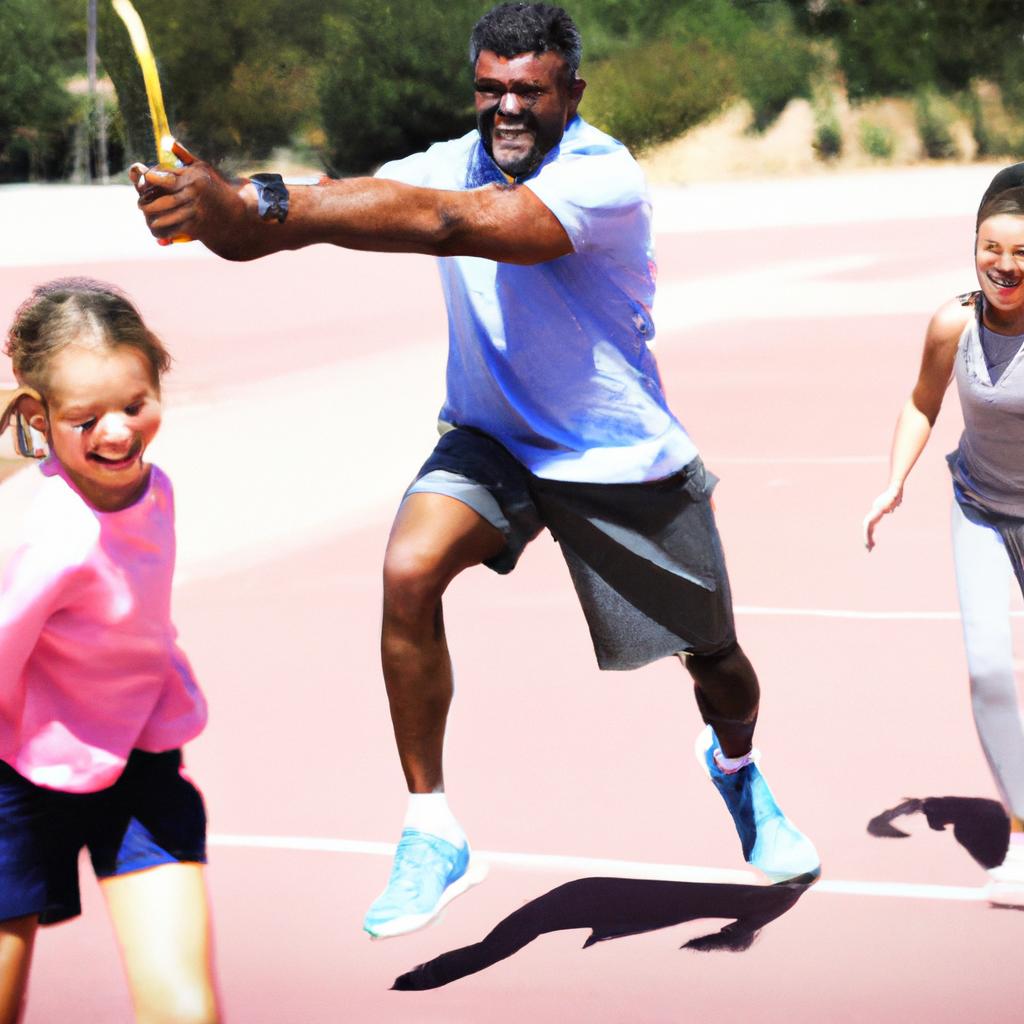In the world of sports, where fleeting glory often eclipses the foundational values that sustain it, the concept of role models emerges as a beacon of hope and guidance for aspiring athletes. Every kick, swing, and sprint is not just a demonstration of physical prowess; it’s a reflection of an athlete’s character, sportsmanship, and attitude. The journey to excellence is not undertaken in isolation; it is shaped by those who lead by example, embodying the principles of integrity, respect, and perseverance. This article delves into the vital role that role models play in the landscape of athletics, exploring how their influence can inspire not only success on the field but also the development of ethical standards and a strong sense of camaraderie off it. As we unpack the importance of sportsmanship and attitude in the life of every athlete, it becomes clear that the impact of mentorship extends far beyond mere achievements, fostering a culture where every participant can thrive.
The Impact of Positive Role Models on Athletic Development
The journey of an athlete is often shaped not just by their personal determination and discipline, but also by the presence of **positive role models**. These figures, whether they are coaches, seasoned athletes, or mentors, serve as guides in navigating both the physical and psychological challenges of sports. The influence of a role model can manifest in several vital ways:
- Inspiration: Seeing someone overcome adversity can fuel an athlete’s ambition and desire to push beyond their limits.
- Skill Development: Role models often impart crucial techniques and strategies which can enhance performance and foster a competitive edge.
- Character Building: Emulating the sportsmanship, work ethic, and integrity displayed by a role model cultivates a strong foundation for personal development.
- Encouragement: A supportive figure provides athletes with reassurance, helping them to stay motivated during difficult times.
| Role Model Trait | Impact on Athlete |
|---|---|
| Dedication | Encourages consistent effort and perseverance. |
| Resilience | Teaches athletes how to bounce back from setbacks. |
| Integrity | Fosters a strong sense of fairness and ethics in competition. |
By embodying these traits, role models not only enhance an athlete’s performance but also contribute significantly to their holistic growth both on and off the field. As young athletes aspire to reach new heights, having someone to look up to can make all the difference in their quest for excellence.

Fostering Sportsmanship: Cultivating Attitude and Integrity in Young Athletes
In the journey of an athlete, the cultivation of a positive attitude and unwavering integrity can be just as important as physical skill. Young athletes, impressionable and eager for guidance, benefit immensely from exemplary role models who demonstrate **sportsmanship** not only in victory but also in defeat. The essence of a commendable athlete is often reflected in their ability to:
- Respect opponents: Acknowledging the effort and talent of others fosters respect and encourages camaraderie.
- Embrace challenges: Understanding that setbacks are part of growth helps build resilience and a positive mindset.
- Show humility: Celebrating wins with grace rather than arrogance sets a powerful example for peers.
- Support teammates: Encouraging others and sharing success promotes a spirit of unity and collaboration.
To further emphasize the significance of these qualities in athletic development, consider the following comparison of attitudes observed in athletes:
| Attitude | Example of Behavior |
|---|---|
| Positive | Encouraging teammates after a loss |
| Negative | Blaming others for mistakes |
| Constructive | Offering feedback to improve performance |
| Destructive | Mocking opponents or teammates |
As young athletes look up to their mentors, they develop not just as competitors but as individuals who embody the essence of sportsmanship, creating a culture where integrity and respect thrive on and off the field.
Wrapping Up
In the world of sports, where triumphs are celebrated and defeats can sting, the role of a positive role model cannot be understated. As we’ve explored, sportsmanship and attitude profoundly influence not only the athletes themselves but also the communities that rally around them. Every athlete, regardless of their level or discipline, deserves a guiding figure who embodies integrity, resilience, and respect. By fostering a culture where role models shine brightly, we can nurture not just exceptional athletes, but well-rounded individuals who contribute positively to society.
As we look to the future of sports, let us champion the importance of mentorship and accountability. By instilling these values in young athletes, we pave the way for a new generation that will not only chase victories but will also uplift their peers, inspire their opponents, and promote a sense of camaraderie across the playing field. Ultimately, it is this spirit of sportsmanship that will ensure the lasting legacy of athletes and the heart of competition, proving that every play is an opportunity to reflect our best selves. In the grand arena of life, let us all strive to be the role models worth looking up to.











Leave a Reply